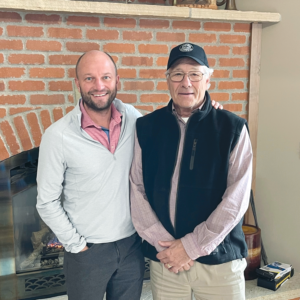by Evelyn Pyburn
Outdoor recreation plays a bigger role in Montana’s economy than it does for any other state as a share of the total economy.
The U.S. Bureau of Economic Analysis (BEA) announced statistics regarding the outdoor recreation economy for the nation just last week, stating that the data show that the outdoor recreation economy accounted for 1.8 percent ($374.3 billion) of current-dollar gross domestic product for the nation in 2020. At the state level, outdoor recreation value added as a share of state GDP ranged from 4.3 percent in Montana to 1.2 percent in New York and Connecticut.
The share was 0.8 percent in the District of Columbia.
The news is probably not surprising to most Montanans who witnessed the great influx of tourism and increased use of outdoor attractions with the onset of the COVID pandemic two years ago.
Our national parks started reporting record visitations. In September, Yellowstone National Park reported that more than 882,000 visits were recorded— a 5 percent increase over last September and a 27 percent increase from September 2019.
And advance reservations for Montana’s public campgrounds skyrocketed, as RV travel and camping gained in popularity as people throughout the country began looking for escapes from shutdowns and turned to domestic travel and recreational opportunities. The Center for Western Priorities recently reported that the estimated occupancy of reservable campsites in Montana jumped from 46 percent in 2014 to 76 percent in 2020 —a 64 percent increase over the six year period, compared to 39 percent nationally.
And, most recently a focused study regarding hunting and fishing activity from the Montana Bureau of Business and Economic Research reported that just in southwestern Montana, hunting and angling accounts for $167 million to the economy of Beaverhead County.
In the report, BBER Director Pat Barkey stated, “Montana remains a premier location for outdoor recreation related businesses to attract significant spending.”
Despite the significance it plays in Montana, nationally – and even in Montana — the outdoor economy has seen a decline, according to the BEA. Inflation-adjusted (real) GDP for the outdoor recreation economy decreased 19.0 percent from 2019 to 2020, compared with a 3.4 percent decrease for the overall U.S. economy. Real gross output for the outdoor recreation economy decreased 17.4 percent, while outdoor recreation compensation decreased 12.5 percent and employment decreased 17.1 percent. Employment dropped in Montana by 17.5 percent.
Outdoor recreation estimates were impacted by the issuance and lifting of “stay-at-home” orders by governments in response to COVID-19. This led to rapid changes in demand as consumers canceled, restricted, or redirected their spending. The U.S. government passed several laws to support and sustain businesses and individuals through the pandemic. The full economic effects of the COVID-19 pandemic cannot be quantified in the outdoor recreation estimates because the impacts are generally embedded in source data and cannot be separately identified.
Outdoor recreation activities fall into three general categories: conventional activities (such as bicycling, boating, hiking, and hunting); other core activities (such as gardening and outdoor concerts); and supporting activities (such as construction, travel and tourism, local trips, and government expenditures).
In 2020, conventional outdoor recreation accounted for 37.4 percent of U.S. outdoor recreation value added, compared with 30.6 percent in 2019. The increase was due to higher spending on boating/fishing and RVing. Other outdoor recreation accounted for 16.8 percent of value added in 2020, compared with 19.7 percent in 2019. The decrease was driven by amusement parks/water parks and festivals/sporting events/concerts. Supporting activities accounted for the remaining 45.8 percent of value added in 2020, compared with 49.7 percent in 2019. Supporting activities, particularly travel and tourism-related activities, declined in 2020 during the COVID-19 pandemic as consumers traveled less and reduced spending at hotels and restaurants.
Additional value added by activity highlights for 2020 include:
* Boating/fishing was the largest conventional activity for the nation as a whole at $30.8 billion in current-dollar value added and was the largest conventional activity in 39 states and the District of Columbia. Florida ($3.8 billion), California ($2.8 billion), and Texas ($2.8 billion) were the largest contributors to U.S. value added for the activity (state table 2).
* RVing was the second-largest conventional activity nationally at $19.1 billion in current-dollar value added and was the largest conventional activity in five states. The largest contributors were Indiana ($3.4 billion) and Texas ($1.7 billion).
* Snow activities was the largest conventional activity in Colorado ($1.2 billion), Utah ($468.0 million), Vermont ($191.3 million), and Wyoming ($92.2 million) in current-dollar value added. At the national level, current-dollar value added for snow activities was $4.7 billion.
The outdoor recreation by industry data show the contribution of different industries to the outdoor recreation economy, including their impact on value added, gross output, employment, and compensation.
For the nation, the retail trade sector was the largest contributor to U.S. outdoor recreation value added in 2020, accounting for $101.9 billion (national table 6). At the state level, retail trade was the largest contributor to outdoor recreation value added in 35 states. The leading contributors were California ($11.6 billion), Florida ($8.8 billion), and Texas ($8.6 billion) (state table 3).
Additional value added by industry highlights for 2020 include:
* Arts, entertainment, recreation, accommodation, and food services, the second-largest sector, contributed $86.8 billion in current-dollar value added to outdoor recreation nationally. At the state level, this industry was the largest contributor to outdoor recreation in 13 states and the District of Columbia.
* Manufacturing, the third-largest sector, contributed $52.8 billion nationally to the outdoor recreation economy. At the state level, this sector was the largest contributor to the outdoor recreation economy in Indiana ($5.3 billion) and Wisconsin ($1.9 billion).
plays a bigger role in Montana’s economy than it does for any other state as a share of the total economy.
The U.S. Bureau of Economic Analysis (BEA) announced statistics regarding the outdoor recreation economy for the nation just last week, stating that the data show that the outdoor recreation economy accounted for 1.8 percent ($374.3 billion) of current-dollar gross domestic product for the nation in 2020. At the state level, outdoor recreation value added as a share of state GDP ranged from 4.3 percent in Montana to 1.2 percent in New York and Connecticut.
The share was 0.8 percent in the District of Columbia.
The news is probably not surprising to most Montanans who witnessed the great influx of tourism and increased use of outdoor attractions with the onset of the COVID pandemic two years ago.
Our national parks started reporting record visitations. In September, Yellowstone National Park reported that more than 882,000 visits were recorded— a 5 percent increase over last September and a 27 percent increase from September 2019.
And advance reservations for Montana’s public campgrounds skyrocketed, as RV travel and camping gained in popularity as people throughout the country began looking for escapes from shutdowns and turned to domestic travel and recreational opportunities. The Center for Western Priorities recently reported that the estimated occupancy of reservable campsites in Montana jumped from 46 percent in 2014 to 76 percent in 2020 —a 64 percent increase over the six year period, compared to 39 percent nationally.
And, most recently a focused study regarding hunting and fishing activity from the Montana Bureau of Business and Economic Research reported that just in southwestern Montana, hunting and angling accounts for $167 million to the economy of Beaverhead County.
In the report, BBER Director Pat Barkey stated, “Montana remains a premier location for outdoor recreation related businesses to attract significant spending.”
Despite the significance it plays in Montana, nationally – and even in Montana — the outdoor economy has seen a decline, according to the BEA. Inflation-adjusted (real) GDP for the outdoor recreation economy decreased 19.0 percent from 2019 to 2020, compared with a 3.4 percent decrease for the overall U.S. economy. Real gross output for the outdoor recreation economy decreased 17.4 percent, while outdoor recreation compensation decreased 12.5 percent and employment decreased 17.1 percent. Employment dropped in Montana by 17.5 percent.
Outdoor recreation estimates were impacted by the issuance and lifting of “stay-at-home” orders by governments in response to COVID-19. This led to rapid changes in demand as consumers canceled, restricted, or redirected their spending. The U.S. government passed several laws to support and sustain businesses and individuals through the pandemic. The full economic effects of the COVID-19 pandemic cannot be quantified in the outdoor recreation estimates because the impacts are generally embedded in source data and cannot be separately identified.
Outdoor recreation activities fall into three general categories: conventional activities (such as bicycling, boating, hiking, and hunting); other core activities (such as gardening and outdoor concerts); and supporting activities (such as construction, travel and tourism, local trips, and government expenditures).
In 2020, conventional outdoor recreation accounted for 37.4 percent of U.S. outdoor recreation value added, compared with 30.6 percent in 2019. The increase was due to higher spending on boating/fishing and RVing. Other outdoor recreation accounted for 16.8 percent of value added in 2020, compared with 19.7 percent in 2019. The decrease was driven by amusement parks/water parks and festivals/sporting events/concerts. Supporting activities accounted for the remaining 45.8 percent of value added in 2020, compared with 49.7 percent in 2019. Supporting activities, particularly travel and tourism-related activities, declined in 2020 during the COVID-19 pandemic as consumers traveled less and reduced spending at hotels and restaurants.
Additional value added by activity highlights for 2020 include:
* Boating/fishing was the largest conventional activity for the nation as a whole at $30.8 billion in current-dollar value added and was the largest conventional activity in 39 states and the District of Columbia. Florida ($3.8 billion), California ($2.8 billion), and Texas ($2.8 billion) were the largest contributors to U.S. value added for the activity (state table 2).
* RVing was the second-largest conventional activity nationally at $19.1 billion in current-dollar value added and was the largest conventional activity in five states. The largest contributors were Indiana ($3.4 billion) and Texas ($1.7 billion).
* Snow activities was the largest conventional activity in Colorado ($1.2 billion), Utah ($468.0 million), Vermont ($191.3 million), and Wyoming ($92.2 million) in current-dollar value added. At the national level, current-dollar value added for snow activities was $4.7 billion.
The outdoor recreation by industry data show the contribution of different industries to the outdoor recreation economy, including their impact on value added, gross output, employment, and compensation.
For the nation, the retail trade sector was the largest contributor to U.S. outdoor recreation value added in 2020, accounting for $101.9 billion (national table 6). At the state level, retail trade was the largest contributor to outdoor recreation value added in 35 states. The leading contributors were California ($11.6 billion), Florida ($8.8 billion), and Texas ($8.6 billion) (state table 3).
Additional value added by industry highlights for 2020 include:
* Arts, entertainment, recreation, accommodation, and food services, the second-largest sector, contributed $86.8 billion in current-dollar value added to outdoor recreation nationally. At the state level, this industry was the largest contributor to outdoor recreation in 13 states and the District of Columbia.
* Manufacturing, the third-largest sector, contributed $52.8 billion nationally to the outdoor recreation economy. At the state level, this sector was the largest contributor to the outdoor recreation economy in Indiana ($5.3 billion) and Wisconsin ($1.9 billion).






